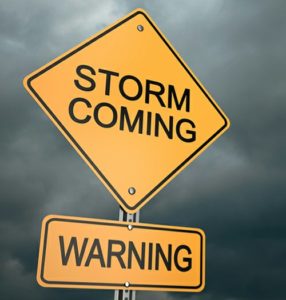When a disaster is heading your way, you need to prepare to cope with the emotional trauma you and your loved ones will experience..

Disasters cause everyone affected to feel upset. The emotional toll of the disaster can devastate you and your family more than the loss of your home, business, or personal property.
A disaster can cause post-traumatic stress disorder, especially if the stress is not dealt with carefully.
Certain people are more at risk for this emotional devastation. Children, older people, disabled people, and people who do not understand English well are especially at risk. Children and older people can become afraid and disoriented. Disabled people will need more assistance than normal. People who experience a disaster “second-hand” through the media can also be affected, but everyone can find a strategy to cope with a disaster.
You must first understand the effects of a disaster.
- Everyone who sees or lives through a disaster is affected by it in some way.
- It is normal to feel anxious about your safety and the safety of your loved ones.
- Profound sadness, grief, and anger are normal reactions to a disaster.
- To recover emotionally, you need to acknowledge your feelings.
- Focusing on your strengths and abilities helps you to heal emotionally.
- It is healthy to accept help from community programs.
- You and each of your loved ones have different needs and will cope in different ways.
- It is common to want to strike out when you have emotional pain.
To find crisis counselling, contact local faith-based organizations and professional counselors. Also, FEMA and local governments may provide crisis counselling.
Recognize signs of disaster related stress.
When adults have the following symptoms, they may need crisis counseling.
- Difficulty communicating their thoughts, sleeping, concentrating, or maintaining balance in their lives.
- Lower than normal threshold for frustration.
- Limited attention span.
- Increased use of drugs and/or alcohol.
- Poor work performance.
- Headaches and stomach aches.
- Reluctance to leave home.
- Depression, sadness, mood swings, and easy bouts of crying.
- Overwhelming guilt and self-doubt.
- Fear of crowds, strangers, and being alone.
Easing the stress.
Talk with someone about your feelings, even though it may be difficult.
- Seek help from professional counselors who deal with post-disaster stress or PTSD.
- Promote your own physical and emotional healing by eating well, resting, exercising, relaxing, and meditating.
- Maintain as normal a daily routine as possible.
- Spend time with family and friends, even when your depression and anxiety cause you to feel like being alone.
- Participate in memorials.
- Participate in support groups.
Helping kids cope with disaster.
Children feel frightened during a disaster. Frightened, confused, and insecure. Click here to learn how you can help a child prepare and cope with a traumatic event.
After a disaster, limit a child’s exposure to the media coverage of the event. Hug your children as often as possible. Calmly provide factual information about the disaster and the current plans for recovery, as well as plans to deal with any disasters that may happen in the future. Encourage your children to talk about their feelings. Re-establish your family’s normal daily routine as soon as possible. Let your children help by doing chores—let them feel they are helping their family and community! Recognize their responsible behaviors and praise them. Pray with your children and take them to church.
Each child in your family will have a range of reactions. You should encourage them to help update the family disaster plan by telling you how they would like the plan changed and why.
Children are more at risk for developing PTSD. In fact, all children whose reactions to the trauma are not dealt with properly will develop PTSD. If you and your children have just experienced a disaster, it is wise to get them into counseling immediately following the disaster, or as soon as possible.
***
I have PTSD. I would not wish it on anyone, not even my worst enemy or the man who caused my PTSD. It has been the most challenging thing I have ever dealt with. I hope that as you cope with the aftermath of the storm, you find the strength and the help to prevent you and your loved ones from developing PTSD!
Seek crisis counseling if you or someone you know experiences disaster-related stress.
Soar like an eagle over the upcoming storm as well as you can. Make the safety and physical preparations you need to make and cope with the related emotional issues as effectively as possible!
Let the encouraging words in these bobbiejrae posts help you
soar like an eagle above life’s storms.
Please help stop violence.
Always believe you are very strong…
Here are some great flowers you can share…
The most powerful forces are love and positive thinking!



